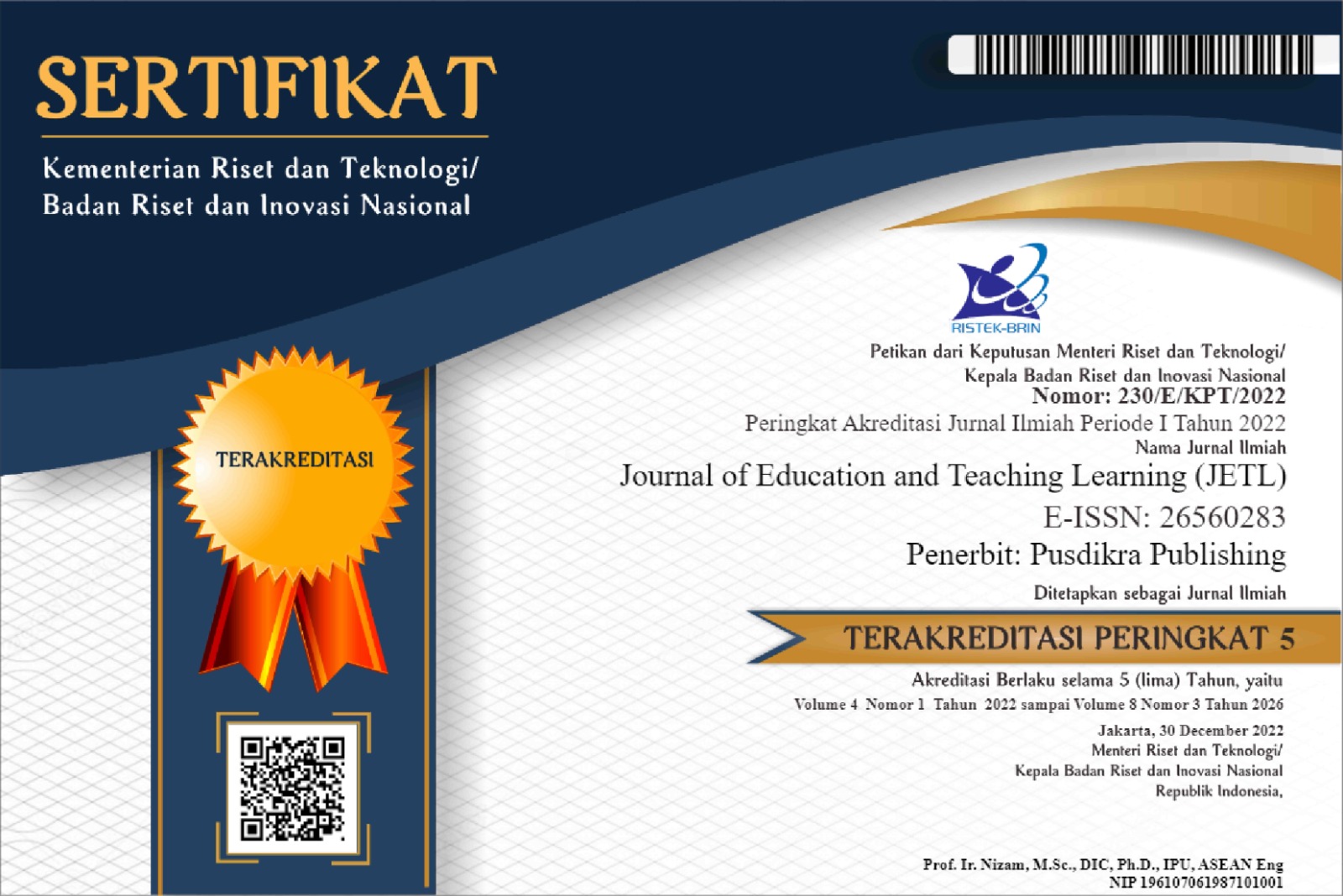ScreeningPlagiarism
Every manuscript that is included in the Journal of Education and Teaching Learning (JETL) will be screened for plagiarism using the Turnitin plagiarism detection tool or the Plagiarism Checker X tool mininum of 30%. Editors will immediately reject papers that lead to plagiarism or self-plagiarism (self-plagiarism).
The Journal of Education and Teaching Learning (JETL) wants to ensure that all authors are prudent and adhere to international standards for academic integrity, particularly on issues of plagiarism.
Plagiarism occurs when a writer takes ideas, information, or words from another source without proper credit to the source. Even if it occurs accidentally, plagiarism is still a serious academic offense and cannot be accepted in academic publications.
When the author learns certain information (name, date, place, statistical number, or other detailed information) from a particular source, the citation is required. (This is only forgivable in the case of general knowledge, where data is available in more than five sources or constitutes general knowledge, for example, the fact that Indonesia is the largest Muslim country in the world.)
When writers take ideas from other authors, quotations are still needed even though the author later develops the idea further. This may be an idea of ??how to interpret the data, either what methodology to use or what conclusions to draw. This may be an idea of ??broad developments in a field or general information. Regardless of the idea, writers must cite their sources. In cases where the author develops the idea further, it is still necessary to cite the original source of the idea, and then in the next sentence, the writer can explain his more developed idea.
If a writer is taking words from another author, quotes and quotes are required. Whenever four or more consecutive words are identical to the source that the author has read, the author must use quotation marks to indicate the other author's use of the original words; quotations are no longer sufficient.
The Journal of Education and Teaching Learning (JETL) takes academic integrity very seriously, and editors have the right to withdraw acceptance of papers found to violate the standards set out above. For more information, prospective authors can contact the editorial office at journal.jetl@gmail.com



